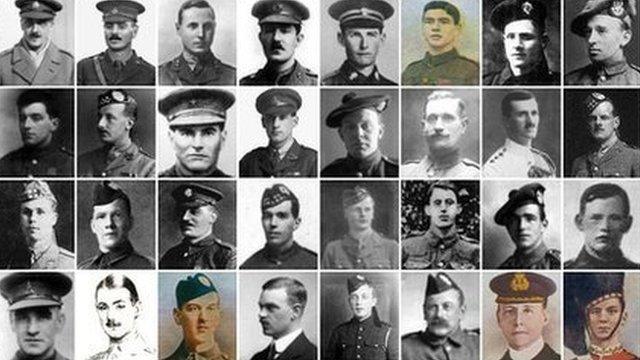Events mark centenary of the Battle of the Somme
- Published
Veterans from 12 regimental associations across Scotland took part in the two minute silence
Ceremonies have taken place to mark the centenary of the start of the bloodiest battle in British history.
First Minister Nicola Sturgeon was at a service in France to remember the lives lost in the Battle of the Somme.
Prime Minister David Cameron, the Duke and Duchess of Cambridge and Prince Harry were also at the ceremony at The Thiepval Memorial to the Missing.
Earlier a two minute silence marked the exact moment the first wave of men went over the top in the battle.
It brought to an end an overnight vigil by members of the armed forces at the National War Memorial in Edinburgh.
More than a million men were wounded or killed in the 141-day battle, the most devastating encounter of World War One.
A ceremony has been held at the Lochnagar crater which was created by an explosion at the start of the battle in La Boiselle, France.
And wreathes have been laid at a memorial to the 15th and 16th battalions of the Royal Scots in the French village of Contalmaison.
In Glasgow two paving stones have been unveiled honouring local soldiers who received the Victoria Cross for bravery at the Somme.
Meanwhile, men dressed as World War One soldiers were spotted in Glasgow and Shetland handing out cards detailing casualties of the Battle of the Somme.
The hashtag #wearehere, which features on the cards, trended on Twitter as pictures of the tribute are shared.
It was later revealed to be a Somme commemoration project by National Theatre head Rufus Norris and artist Jeremy Deller.
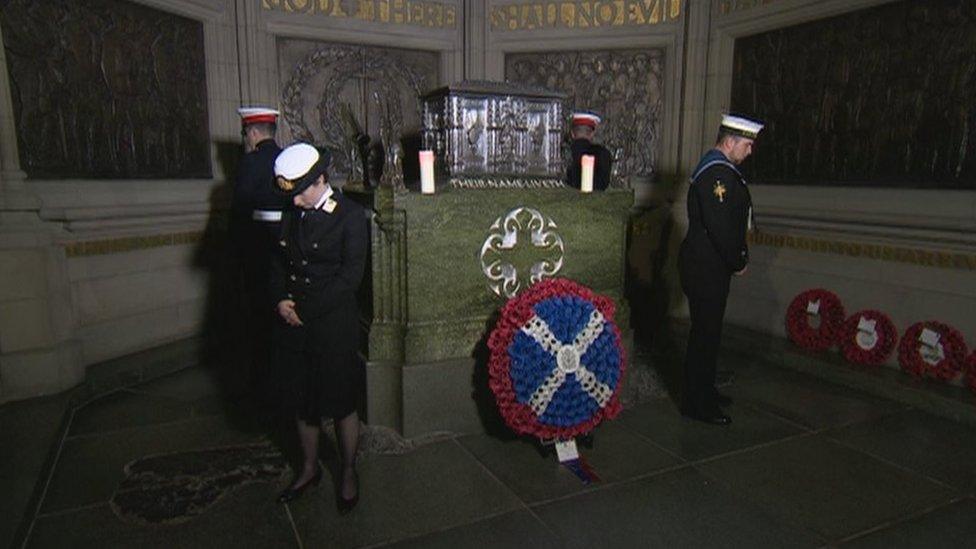
Servicemen and women took part in the vigil at the National War Memorial
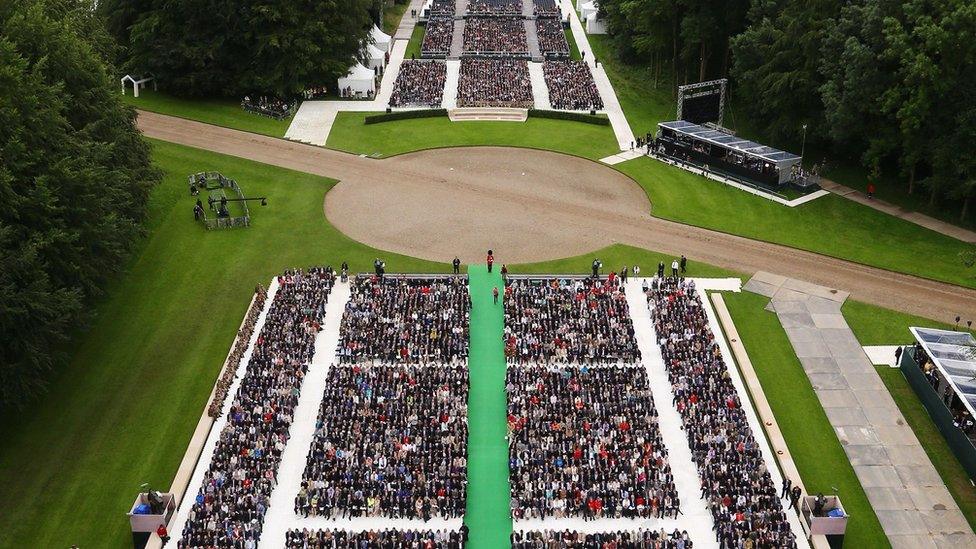
Thousands of people are attending a service of remembrance at Thiepval in France
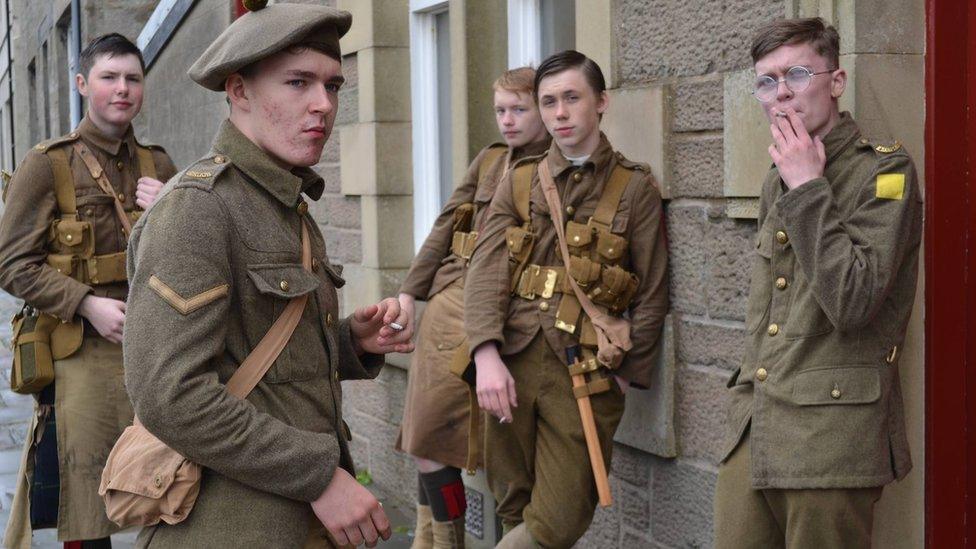
Young men dressed as World War One soldiers were spotted in Shetland
Commemorations began at Scotland's National War Memorial on Thursday evening when hundreds of people joined military personnel, veterans and descendents at an overnight vigil.
Prayers were said before candles were taken inside the war memorial and placed on a casket containing the original Roll of Honour for the fallen of the Great War.
The candles were guarded overnight by service personnel and veterans' groups, who stood by the casket with their heads bowed.
A two-minute silence, which began with the firing of the One O'Clock Gun, ended at 07:30 when Lt Col Alan Hamilton sounded a whistle used by his great uncle, Robert Hamilton, in the trenches of the Somme.
"It was quite emotional, the hairs on the back of my neck went up," he said afterwards.
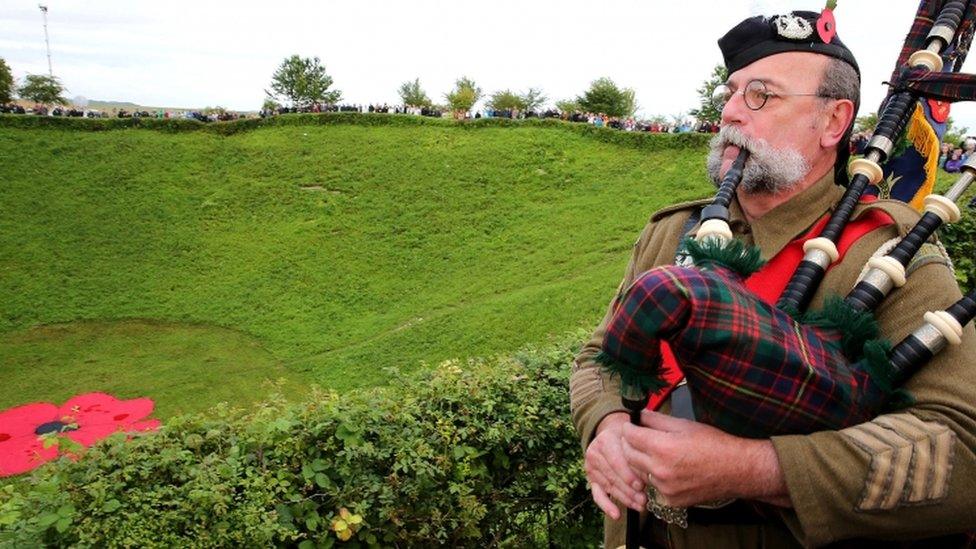
A piper plays at the service near the Lochagnar crater in northern France
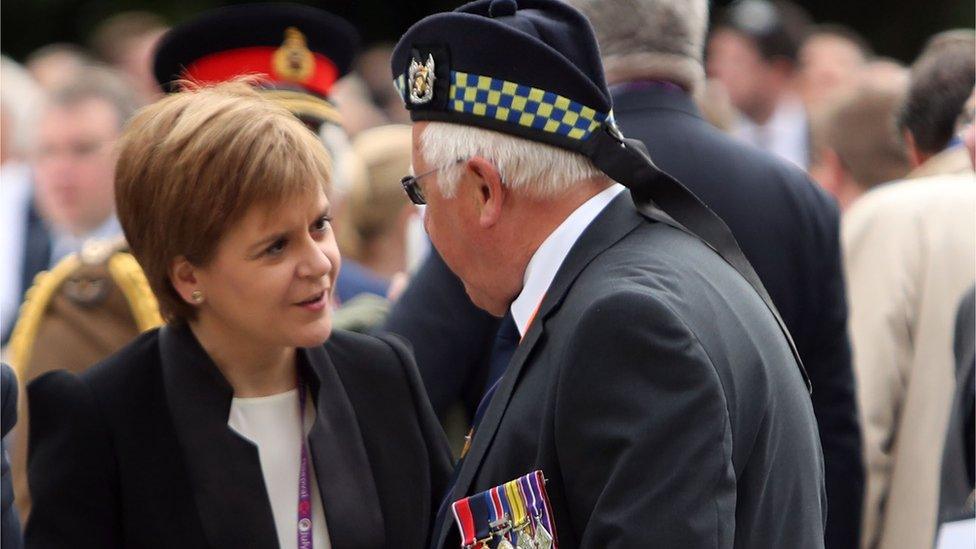
Nicola Sturgeon met veterans at a service of remembrance at Thiepval
Ms Sturgeon, Mr Cameron, and senior members of the Royal Family were among around 10,000 people marking the anniversary at the Thiepval Memorial to the Missing in France.
About 70,000 British and Commonwealth soldiers with no known grave are commemorated at the site.
Speaking ahead of the service, Ms Sturgeon said: "Fifty-one Scottish battalions were involved, and the losses suffered by those units - and those from the other countries involved - were on an almost unimaginable scale.
"Barely a single community in Scotland was left untouched by the battle.
"Across Scotland communities are now remembering those who gave their lives, and a whole century on from the devastation and suffering of the Battle of the Somme, we should all reflect on the horrors of the Great War and give thanks that our continent now lives in peace."

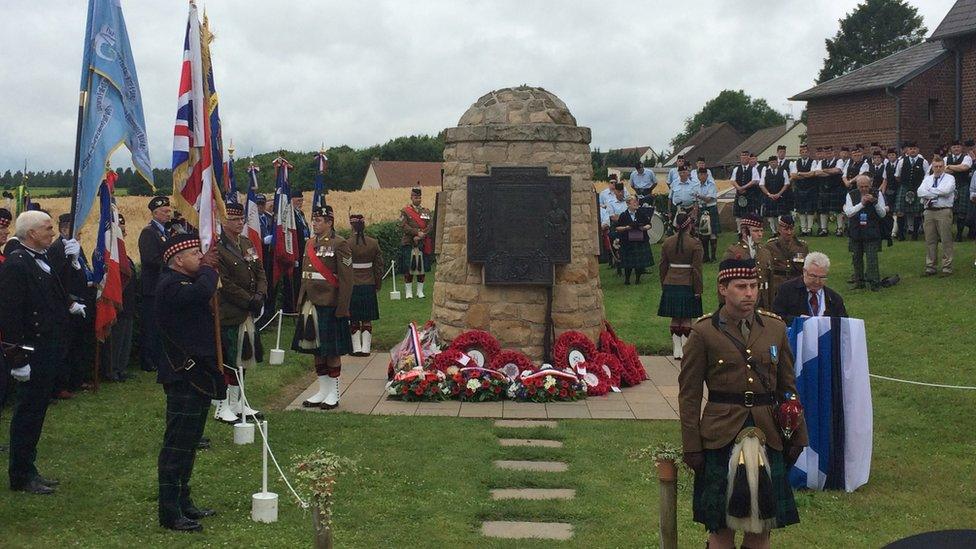
BBC Scotland reporter Cameron Buttle at Contalmaison
Hundreds of people gathered around the memorial cairn in front of the church here in the French village of Contalmaison.
It was on the front line of the battle of the Somme and on this day 100 years ago, men from the Royal Scots climbed out of their trenches to attack the Germans lines in the surrounding fields.
Within one hour, of the 800 men attacking, 670 of them were dead or injured.
A colour party from the Royal Regiment of Scotland stood guard as tributes were paid, a two minutes silence observed and the last post sounded.
The veterans minister Keith Brown was also here to represent the Scottish government.
He said it was almost impossible to take in the losses but it was essential for the country to remember the sacrifice.

Sgt James Turnbull and Drummer Walter Ritchie have been remembered outside the People's Palace on Glasgow Green.
In ceremonies led by the Lord Provost of Glasgow, and attended by the men's relatives, commemorative paving stones have been unveiled.
Both men were awarded a Victoria Cross for acts of bravery on the first day of the Battle of the Somme.
Sgt Turnbull, who was hit by a sniper's bullet, died shortly afterwards, but Drummer Ritchie survived the war and later picked up his VC at Buckingham Palace.
The Lord Provost, Sadie Docherty, said the men showed "extraordinary courage" on the bloodiest day in the history of the British Army.
"One hundred years ago the heroism of both men was very well documented by the media in our city and beyond," she added.
"Today, we hope that by unveiling these commemorative paving stones we will ensure their story isn't forgotten for this generation and generations to come.
"I am particularly pleased that their families are able to take part in these ceremonies - and to be able to express to them the city's gratitude, and my own."
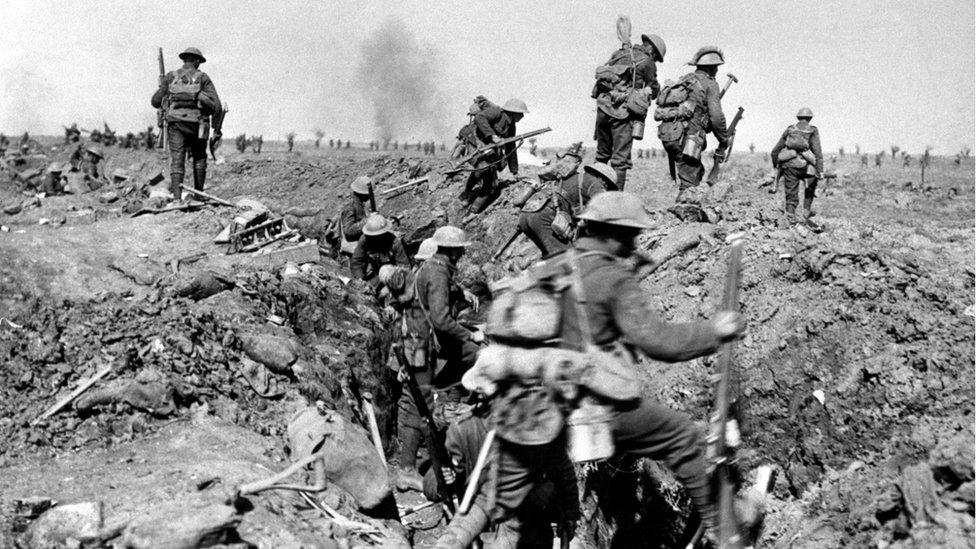
Barely a family in Scotland was unaffected by the carnage at the Battle of the Somme
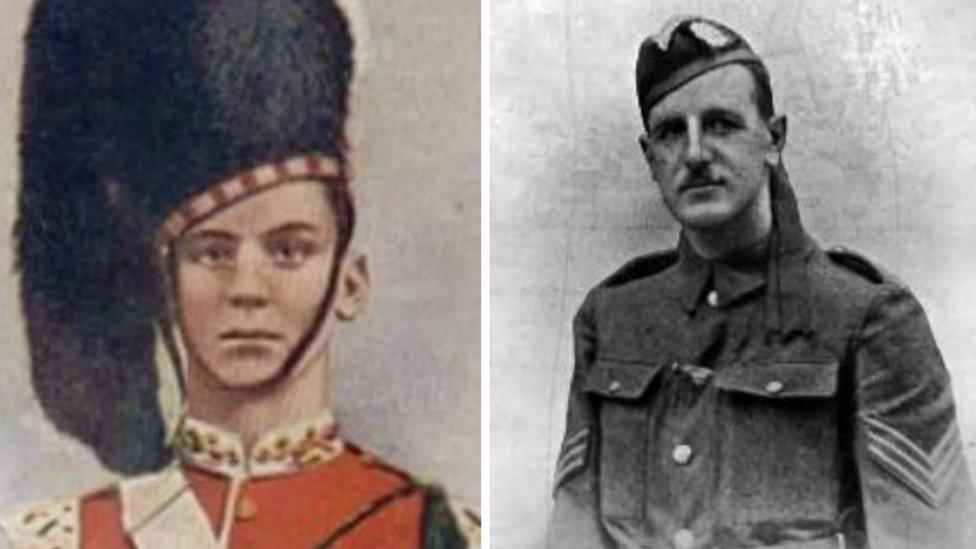
Victoria Cross winners Walter Ritchie and James Turnbull will be remembered in Glasgow
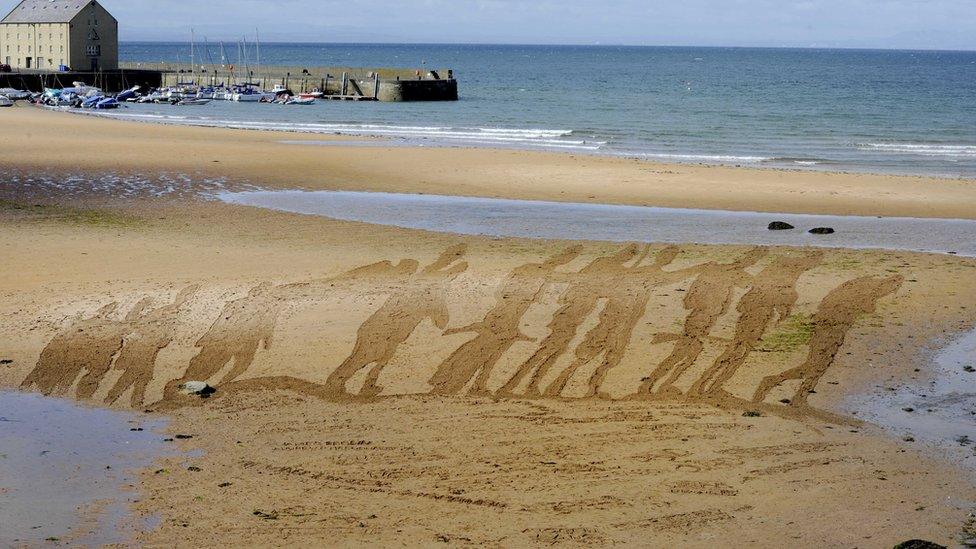
A tribute to the soldiers of the Somme was etched on Elie beach in Fife

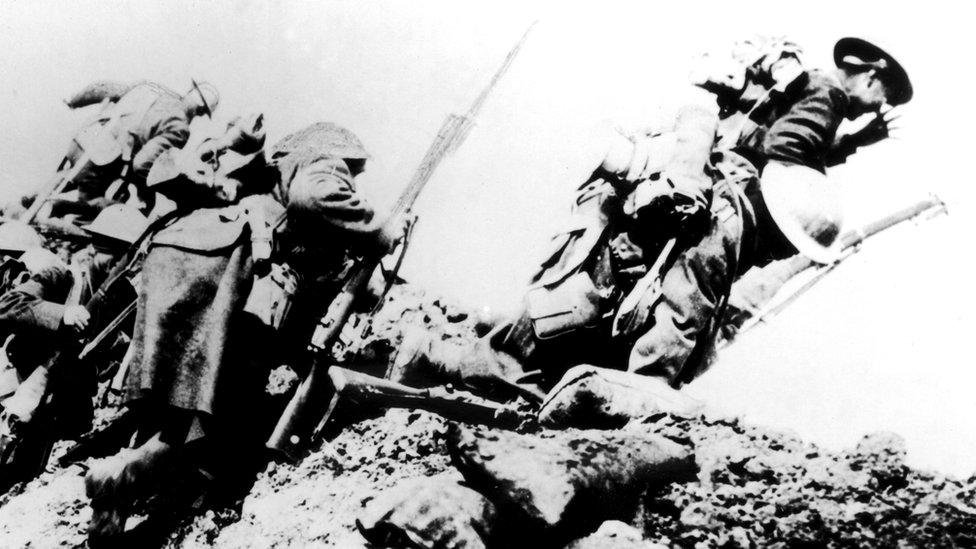
The Battle of the Somme
Began on 1 July 1916 and was fought along a 15-mile front near the River Somme in northern France
19,240 British soldiers died on the first day - the bloodiest day in the history of the British army
The British captured just three square miles of territory on the first day
At the end of the battle, five months later, the British had advanced just seven miles and failed to break the German defence
In total, there were over a million dead and wounded on all sides, including 420,000 British, about 200,000 from France and an estimated 465,000 from Germany
Find out more:

- Published1 July 2016
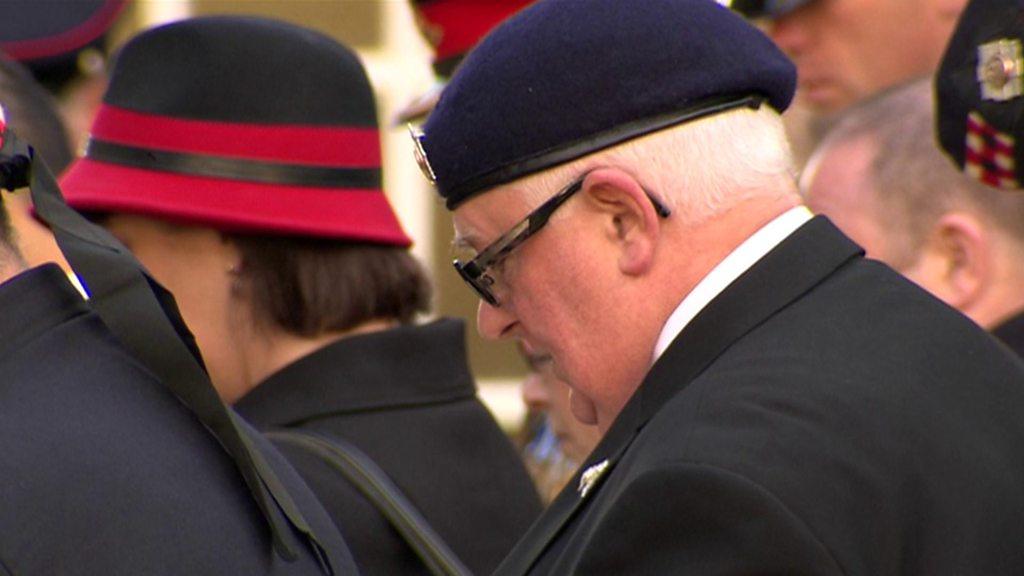
- Published29 June 2016
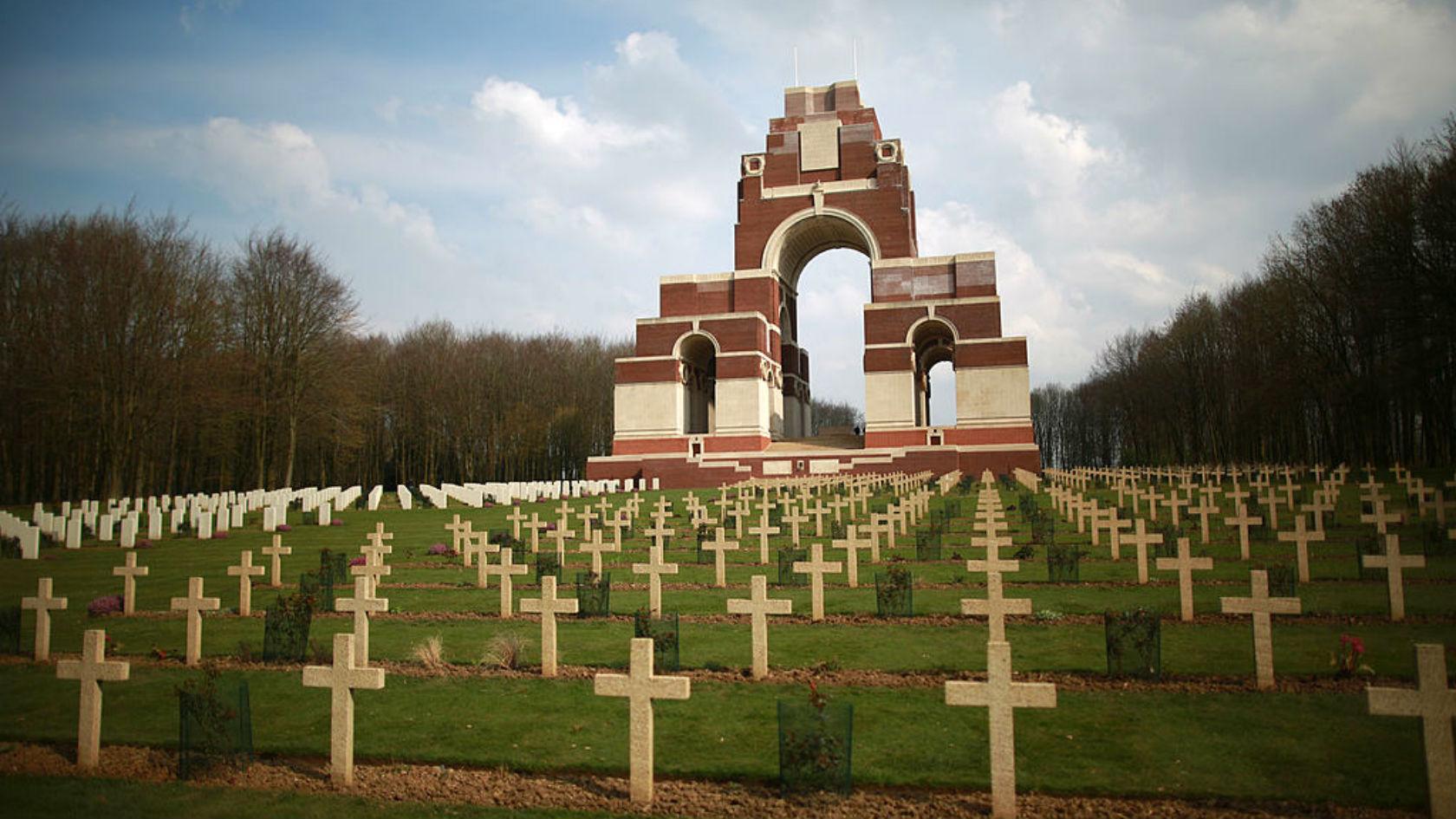
- Published30 June 2016
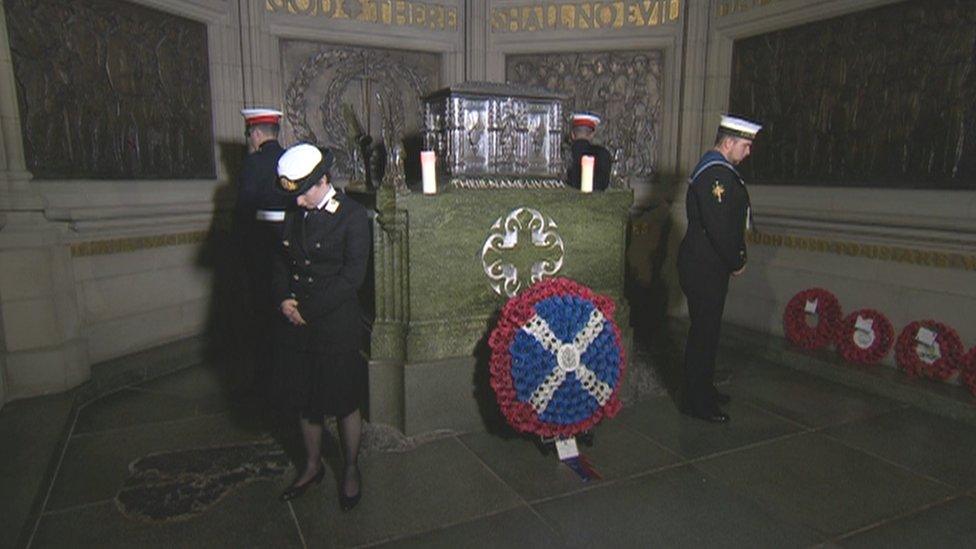
- Published28 June 2016
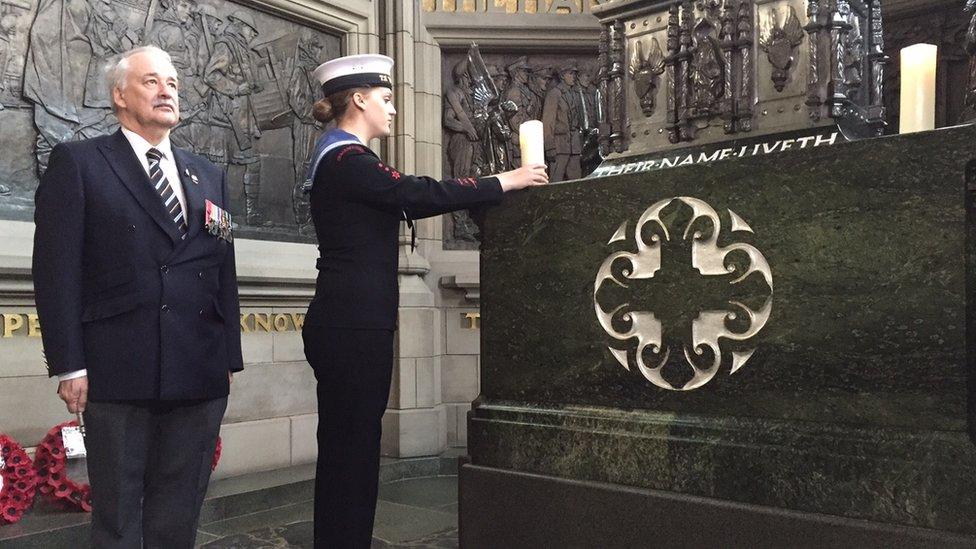
- Published9 November 2014
